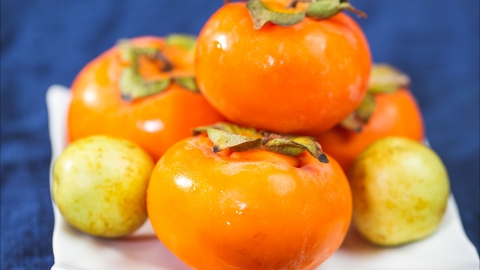Can eating persimmons and crabs together cause poisoning?
Under normal circumstances, eating persimmons and crabs together will not cause poisoning, but consuming large amounts of both together may lead to gastrointestinal discomfort. The detailed explanation is as follows:

Persimmons that are fully ripe contain lower levels of tannic acid and are less likely to combine with protein to form indigestible substances. Crabs, on the other hand, are rich in protein. If the persimmon is fully ripe and the crab is fresh, moderate consumption of both together typically will not cause poisoning. However, persimmons contain significant amounts of tannic acid, and when consumed in large quantities together with protein-rich crabs, the tannic acid may combine with the protein in the stomach to form coagulated substances that are difficult to digest. These substances can increase the digestive burden on the gastrointestinal tract and may cause discomfort symptoms such as abdominal distension, abdominal pain, and nausea. Additionally, both persimmons and crabs are considered cold-natured foods. Consuming them in large amounts may increase internal coldness, especially irritating the gastrointestinal mucosa and affecting normal gastrointestinal motility in individuals with weak digestive systems, thereby exacerbating discomfort.
When eating persimmons, it is recommended to choose those that are fully ripe, as they have lower tannic acid content. When consuming crabs, ensure they are fresh and thoroughly cooked to reduce other gastrointestinal risks. It's best to have at least a 2-hour interval between eating the two foods to avoid consuming large amounts in a short period. Individuals with weak gastrointestinal function, such as elderly people, children, or those with a cold constitution of the spleen and stomach, should try to reduce the frequency of consuming both together and strictly control the portion size each time to avoid physical discomfort caused by improper diet.






